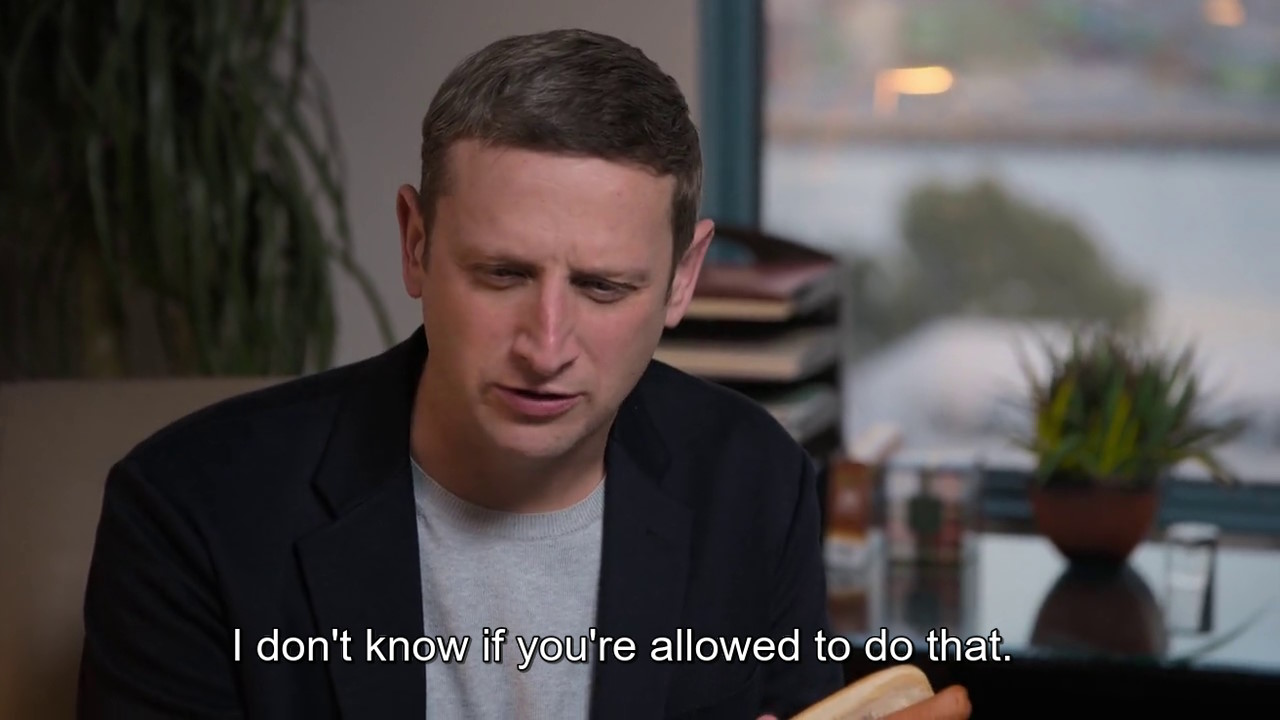
Sketch comedy isn't something I really talk about a lot with other people, even with online friends, but Tim Robinson's I Think You Should Leave is one of the special exceptions where it seems like if you watch it you gain access to a whole new language used in secret across the wider internet. A strong but silent phenomena from the streaming era, I Think You Should Leave is a straight up sketch show, with no linkage between sketches or wraparound segment like Mr. Show, Monty Python, or Key and Peele. As such, the energy (and shortness) of each episode gets to maintain a sort of maniac quality that's only broken up with infectious interlude music.
Beyond featuring the comedy stylings of Tim Robinson, who has been playing to the sort of humor you'll find on this show where the jokes are a breed of anti-joke, the main thing that sets the show apart is sort of a lack of consistent crew members. While other members of the cast may headline a sketch or play a major role alongside Tim, generally the parts are played by people who either have similar comic backgrounds to Tim in guest roles or don't even feel like performers but rather ordinary people.
There's a grander theory I've sort of felt about the show that separates it from everything else I've watched in the terms that it's particular brand of humor seems to have roots with neurodivergence. This is not to say the show is ableist, far from it actually. For me, the humor hits on a level where I find that it links to some sort of symptom of a neurodivergence to an extreme level and is informing the world of the sketch to bend to it almost. Normal, neurotypical people are not welcome in I Think You Should Leave and they are ostracized, comedically, as sketches go on.
At the risk of coming off like I'm explaining a joke, which is the easiest way to rob humor of something, I wanted to explore some sketches to kind of explain this theory. This reading is something I haven't really seen a lot of people share, but I feel like intentional or not it does color the show in a much more fascinating light than just a simple Monty Python/Saturday Night Live wanna-be. I think in all earnestness, much of the writing that tries to explain the ethos of the show seems to almost apply a certain kind of malice that I don't think is present in most sketches. Take
NPR's article about the second season for example:
"A guy so incensed that his boss scheduled a meeting on his lunch break that he shoves a hot dog up his jacket sleeve so he can sneak bites of it during the presentation ... because he thinks he can get away with it.
A guy who interprets a tour guide's throwaway line about the tour being "for adults" as an excuse to ask wildly filthy sexual questions ... because he thinks he can get away with it.
A guy convinced only he can break the tension on a group vacation by launching into a Blues Brothers dance in front of everyone, despite the fact that it upsets the dog and causes everyone to turn on each other ... because he thinks he can get away with it.
You see the throughline, here.
As it did in its first season back in 2019, Netflix's I Think You Should Leave with Tim Robinson delights in depicting acts of thoughtless, entitled masculinity — but only to expose the desperation, defensiveness and hilariously fragile egotism that drive them. There's a performative woundedness in most of the characters Robinson and his fellow sketch comedians play — a sense of perpetual grievance that causes them to fabricate elaborate lies to crawl inside, just to get through the day."
None of the examples NPR cites are honestly things I really feel are done because these characters think they can get away with it- and if that's the reading NPR has of those sketches I probably wouldn't find it as interesting as I do.
No, the first sketch they mention, "You Can't Skip Lunch", feels very much like the sort of extreme adherence to schedule that autistic people generally have. Speaking as an autistic person myself, a symptom of autism is a fondness for routine and scheduled tasks. Breaking out of it can be somewhat unpleasant, even at a more unconscious, psychological level here. I feel like this is the core idea here- the fact he chokes on a hotdog and goes ballistic might be sort of a representation of an meltdown but it's also just a really funny idea in general that the show has brought up before where choking appears to be a sleeper agent to activate a hostile, unruly form of a character in a sketch.
Still, the sketch lays the ethos out pretty simply- "You can't skip lunch. You just can't." Breaking from routine, for Tim Robinson's character, is not preferred. It's something he'll sneak a hotdog into a meeting to meet the routine even when it conflicts with the other event forced to happen at the same time. To attribute it to malice, because Tim Robinson's character thinks he can get away with it- feels completely off base to me.
And to be clear- I love this sketch. Like, the reading I have connects me to the events of it. It's weird to think of it as a comedy sketch, almost in a way because it encompasses a feeling I have in the back of my head when I have to go somewhere and that time intersects with what I think is my routine at the time.
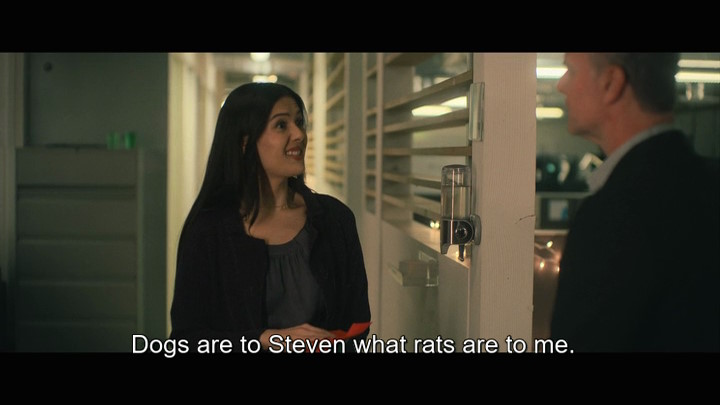
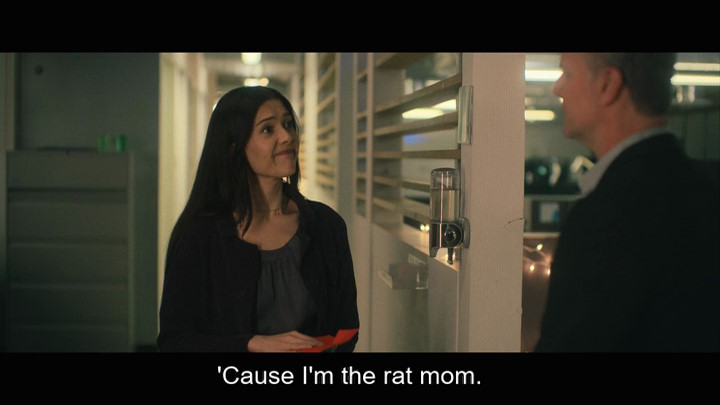
"Ghost Tour" is the second sketch listed in NPR's write up and I think this one is so transparently misread. Like, even having a basic understanding that there might be neurodiverse themes in the sketch feels like such a given to me that I have a hard time believing it's not the intention. To summarize the sketch in detail, a guy is giving a ghost tour and because it's an adult group, he claims they can drink and "say whatever the hell they want". Tim Robinson's character seems to understand this as a license to ask lewd, lurid questions about the stops on the tour and the tour guide gets upset with him in a way that reads like a stern chaperone on a school trip before eventually he's exiled by the whole tour group.
At the end of the sketch, Tim Robinson's character approaches a car, where his mother sits and she asks him if he made any friends. "Not really" replies the man as he enters inside, with Ave Maria playing as the car leaves, a cross dangling from the rear-view mirror. It's such a turn away from the beginning and rest of the sketch, almost humorless, and quietly implies a much bigger world while never actually telling you it's doing that or informing you of what it means.
Is it not reasonable to think Tim's character here is a repressed, autistic man who has had language and thoughts that he's never been able to openly express and that's the point of the sketch? The idea that he just cannot pick up the social cues or understand what he's even doing that's wrong? I feel like for some people, they might need a flashback sequence where that's just how kids talked around him because filthier language with subjects and materials was always present in my school, around people's conversations I mostly spectated.
This one is a little less charitable in the sense that the neurotypical people displaying the correct reactions are the ones who ultimately "win out" in the end but the extra bit the sketch spends in the end largely makes Tim's character too sympathetic, at least to me, to actually make me feel like the intention was to ostracize him from a writer's point of view.
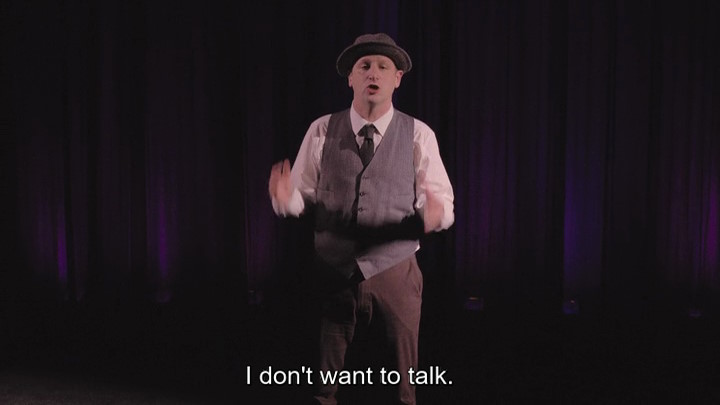
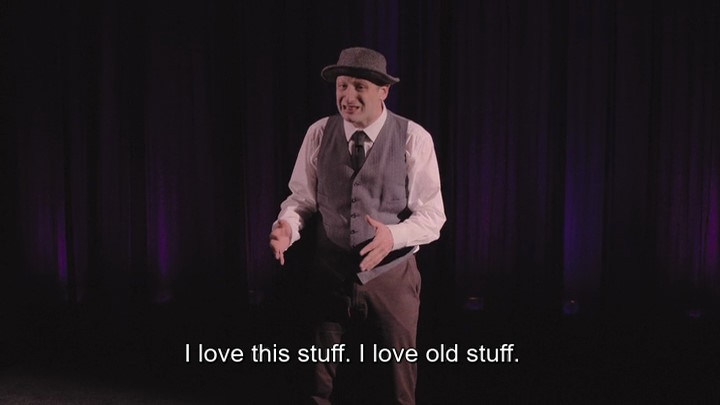
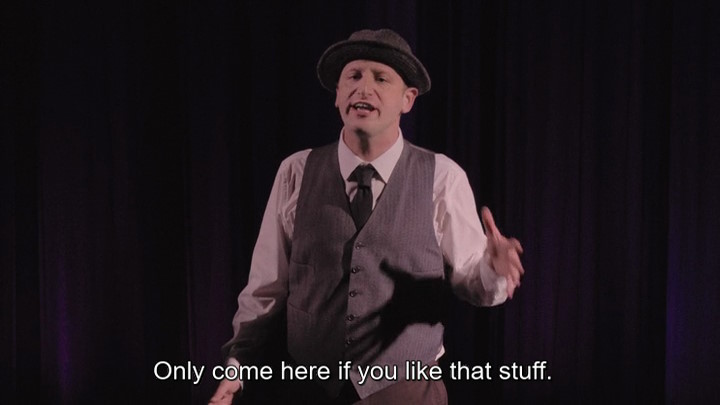
The last of NPR's examples listed is honestly a bit hard to parse even under this theory. The "Blues Brothers" sketch is about a guy trying to dispel tension and in the process freaks out a dog, and seems unwilling to register that he's not making the situation any better. To be honest, this one is a bit harder to read into the way we have with the previous sketches, and I don't think it's any particular symptom per-say, but Tim Robinson's character is so focused in on the task at hand that he doesn't even seem to understand that people were yelling at him.
I think in all honesty it still is a sign of some sort of neurodivergent lens being applied to this sketch, and the latent hostility through the whole thing does not phase him for more than a second. Do I really know the neurodivergent symptom being potentially shown here? Not really. It's not neurotypical relative to the people in the room, and perhaps it's just an extreme example of not being able to pick up a social cue. Perhaps Tim Robinson's character is just under the mistaken impression that something he did as a kid once to dispel tension is the only way to do so?
It could also be the dog at the focus of the sketch, who thinks Tim's character is just a whole new different guy because he's wearing a fedora and sunglasses now. That's not really a neurodiverse angle, per say, but we should stretch for all opportunities in the sketch, me thinks.
To be clear- Tim Robinson has never given, at least to my knowledge, an absolute clear mission statement about the series. There are plenty of people who ascribe to know the mission statement and claim it's something along the lines of a person getting caught in a bad situation/cringe moment and digging a grave through it. Whether they're getting that from Robinson is unclear, but the most he's ever said about the sketches is that they're written to be funny for him and his co-writer and that he feels like the guy in the Karl Havoc suit from the "Prank Show" skit was lying about not wanting to be around anymore because he wanted to get out of the suit by all means necessary.
That skit in particular is interesting because the basis for it was Tim Robinson's own claustrophobia, which is one of the softer neurodivergences that occur in life. Still, I could never claim absolute authorship over the intention of the series or any given sketch, especially because Tim himself seems almost to be hesitant to flat out do it as well. It's ultimately just a theory of thinking regarding the series, but by no means is it an absolute lens or even necessarily one that makes the series funny. However, I think it's really weirdly good at portraying neurodivergent traits in comedy, not as comedy or that being the only joke. It's hard to absolutely say one definite angle on the neurodivergent vibes of the show but it never feels like it's punching down to me. There are shows with explicit and unexplicit autistic characters like The Good Doctor, iCarly, or the Big Bang Theory that do not have the nuance and understanding that this show seems to have, even if it's entirely just a happy little accident.
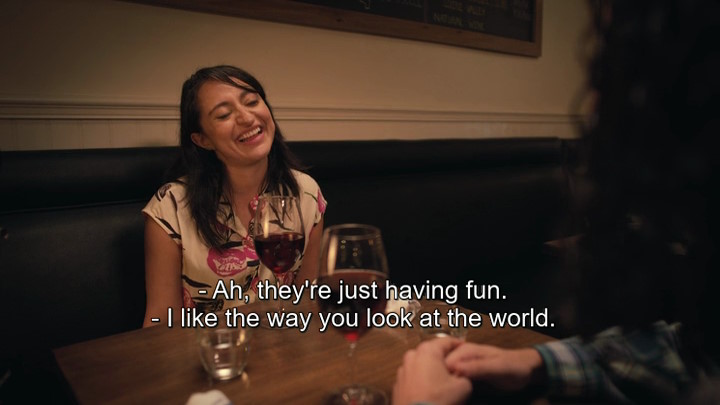
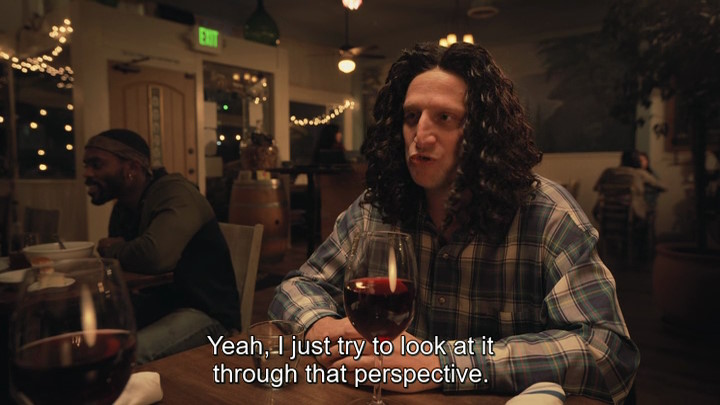
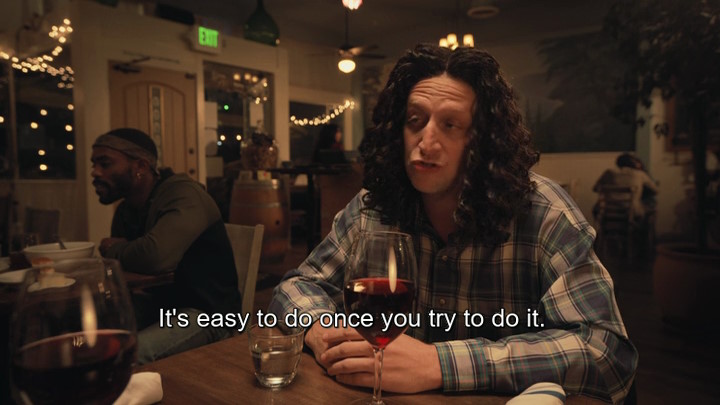
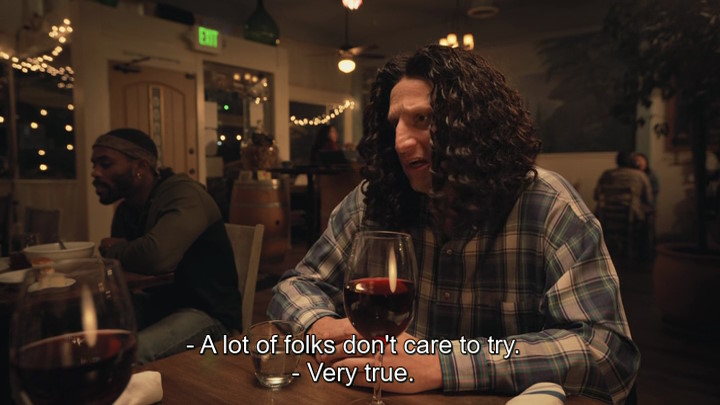
Sketch comedy is inherently going to be hit or miss as it's an extension of the device of the anthology format, but for what it's worth
I Think You Should Leave manages to be perfectly bite-sized and different from the other shows that inspired it that I wholly recommend it. If you come out of it not convinced of the neurodivergent angle adding anything to it, I'm gonna go on my phone. It's got games and stuff on it.











